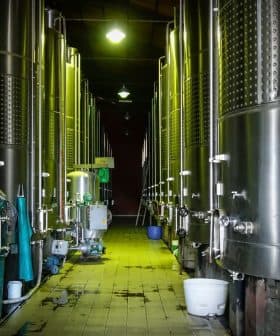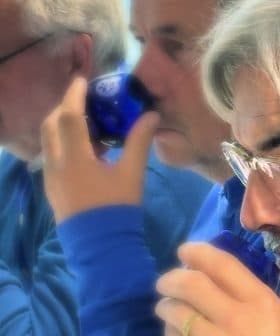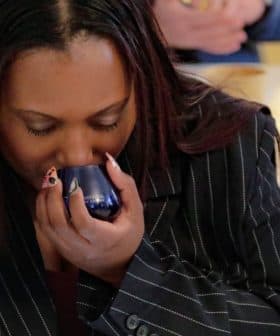In Germany, It's All About Harmony
Harmony has become an important factor to consider for exporters of extra virgin olive oils to Central Europe.
Harmony is a crucial concept in the olive oil industry, with a focus on combining various elements to create a well-balanced oil. In Germany, the harmony value is used to categorize extra virgin olive oils and has become an important factor for importers and companies exporting to the region.
Harmony is a term used in the olive oil industry to describe an oil that combines many fine elements together. Our own Ollie says that it is a characteristic of a well-balanced oil, “one that offers a pleasant combination of fruitiness, bitterness, and pungency.”
In competitions, most notably the NYIOOC World Olive Oil Competition, harmony and complexity are values that add significantly to the judges’ scoring of an oil.
But harmony is also an established method in Germany to categorize samples within the EVOO grade.
The organoleptic assessment of olive oil, or sensory evaluation, adheres to standards set by the International Olive Oil Council, and also to the 640/2008 regulation of the European Commission, for assessments performed in the EU. Olive oil is classified as extra virgin, virgin, or lampante oil, depending on whether it fulfills both the chemical and sensory requirements of each category.
The harmony value (also called balance) is used in Germany and other neighbouring countries as a discrimination factor for extra virgin olive oils to rate them as bad, average, good, very good, and of premium quality.
The idea to extend the basic sensory evaluation process of olive oil emerged in Germany back in 2003, where experts saw a gap in the extra virgin category between the simply non-defective oils and those that were exceptional. The harmony/balance value and the relevant methodology were conceived by Dieter Oberg of the German Olive Oil Panel (DOP) and Annette Bongartz of the Swiss Olive Oil Panel (SOP).
Oberg told Olive Oil Times that the defects they were finding in evaluating olive oils led to the harmony concept. “I was invited to be in different juries and learned so much more, so olive oil became a passion for me,” he said. “But in our panel at that time, the majority of samples for the organoleptic assessment were sent by discounters and supermarket chains and around 50 percent were defective. The goal in the DOP was to change the situation — otherwise, [some] of the tasters would not stay in the panel.”

Dieter Oberg
The methodology included defining criteria like the complexity of the flavor; the diversity, purity and intensity of the aromas; and the harmony/balance of fruity, bitter, and pungent. The process finally results in a mark on a 10-point scale that depicts the harmony value of the specimen.
To apply the methodology, tasters of olive oil need to focus on subtle differences of aromas and tastes in olive oil samples. For this, training sessions were organized to expose the tasters to more sensory parameters.
“The national tasters are well-trained for many years,” Oberg explained. “Advanced training sessions with the tasters’ group take place four times per year. The panel supervisor decides about the importance of refreshing certain parts of the sensory analysis including the harmony value.”
Τhe harmony/balance value was accredited by the German authorities as part of the official national organoleptic assessment process in 2015, and since then it has evolved into an important factor for importers of olive oil in Germany and other German-speaking countries.
For the rest of the continent, harmony is still an unofficial parameter, but its extensive use in central Europe is increasingly relevant for companies exporting to the region.
In Germany, DOP evaluated about 2,700 samples of EVOO between 2013 and 2017 and it found a trend of increasing quality.
Today, big German distributors and discounters of olive oil ask for the help of their national olive oil experts to create tailor-made aroma profiles to be used as benchmarks for producers and bottlers in countries that export olive oil to Germany.
Oberg said that, due to its success and growing acceptance, other European countries would be better off if they adopted the harmony/balance value within with their certified panel testing processes.





